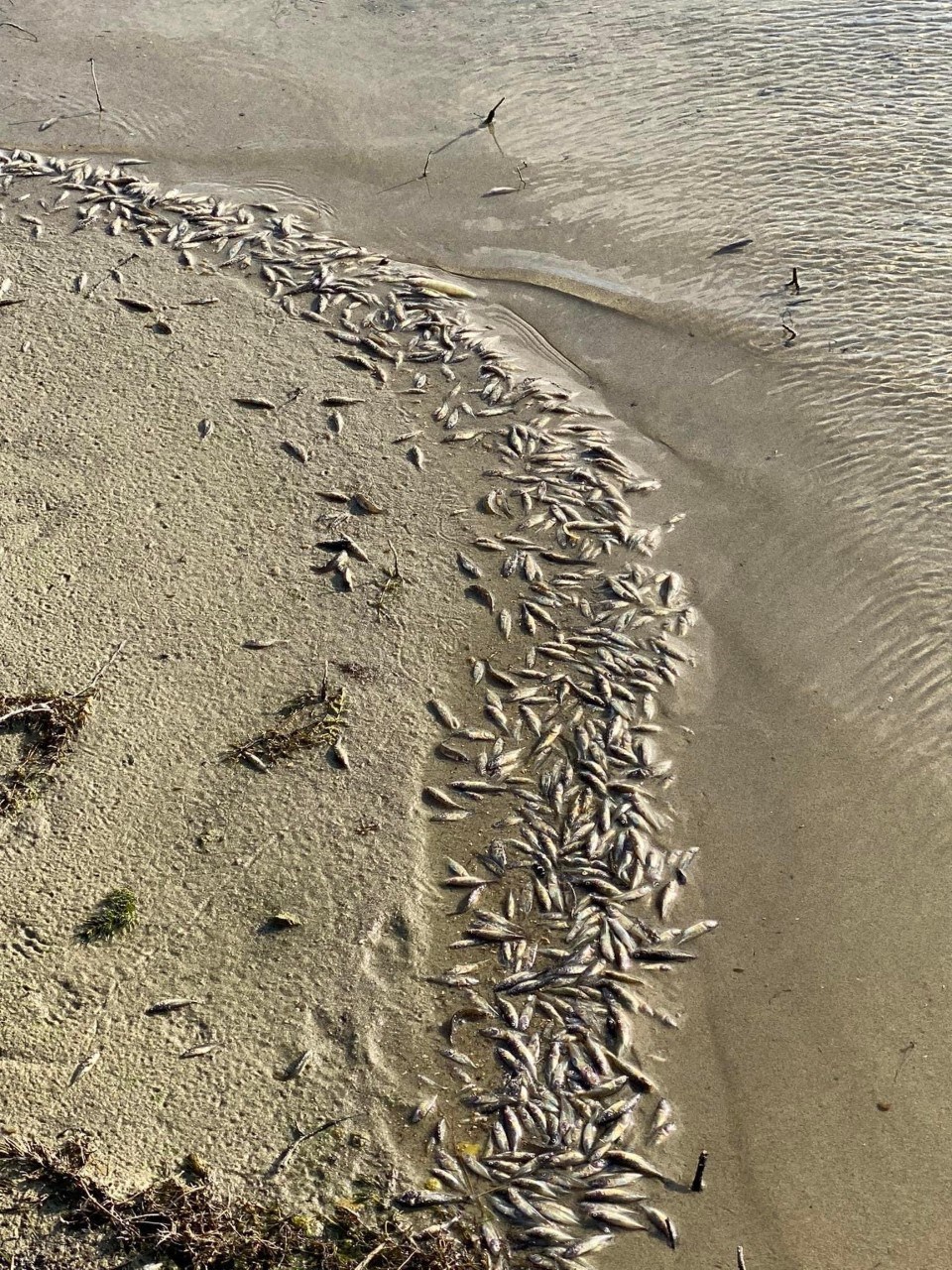ST. PAUL, Alta. – Alberta Environment and Parks have received reports of summer fish kill in Vincent Lake and other waterbodies.
According to one retired biologist, there is also considerable algae and dead fish carcasses present at Stoney Lake. Both lakes are located within the County of St. Paul.
Jason Penner, Communications Advisor at Alberta Environment and Parks, stated in an emailed response to Lakeland Today that summer fish kills are common during long periods of hot weather. He said they result from stress to fish due to being “squeezed” between a very warm water layer close to the surface, and the water further below that may lack oxygen for fish to survive.
“These summer kills can affect many different fish species and are rarely severe or cause a total kill of the fish population,” stated Penner. “Fish that are already less resilient due to age or illness usually succumb first and the dead fish can provide food for scavengers such as gulls, ravens and eagles.”
A photo was provided to Lakeland Today showing several dead fish on the shores of Vincent Lake, near the Summer Village of Horseshoe Bay. Judy Sawchuk took the photo, which was taken on Aug. 28.
Penner said areas experiencing a fish kill may contain high levels of bacteria because of decomposition and may have a foul odour. “If the summer kill results in carcasses washing up on beaches, the carcasses can be cleaned up and disposed of in landfills that accept animal waste,” he stated.
Ray Makowecki also confirmed the summer fish kill. Makowecki, 75, is a retired fisheries biologist who previously worked for the provincial government, and is now member of the St. Paul Fish and Game Association.
Makowecki told Lakeland Today that certain fish species and various sizes of fish may indeed be affected by high water temperature, especially if the temperature exceed 24 degrees Celsius. He said fish species like Lake whitefish, walleye, and larger-sized fish would be more vulnerable to summer die-offs, while smaller-sized fish and minnows are less vulnerable.
High temperature alone may not create major fish mortalities, according to Makowecki, but combined with algae die-offs resulting to decay and decomposition, it could lead to reduced dissolved oxygen levels.
“Usually a few cloudy days could trigger the die-off of the algae and then a more serious fish die-off would occur.”
He recalled seeing similar summer fish kills in the past.
“I have observed some significant fish kills of pike and perch in August in some years, however most summer kills have not eliminated the fish species,” said Makowecki, adding that Vincent Lake had also been experiencing winter kills.
RELATED STORY – Winter fish kill confirmed at Vincent Lake
“Aeration techniques may be useful in sustaining winter dissolved oxygen levels to prevent major losses of the fish stocks [and] high water levels are also a benefit to sustaining fish habitat,” he explained.
According to Makowecki, when a fish kill occurs in a lake, the lake can recover fairly quickly due to a myriad of factors. But, “Of course, you don’t encourage people to swim in those waters because there’s decaying fish."
“Nature has a way of consuming the [dead fishes], but certainly avoid the beaches in those areas where there’s a lot of dead fish,” he recommended.



